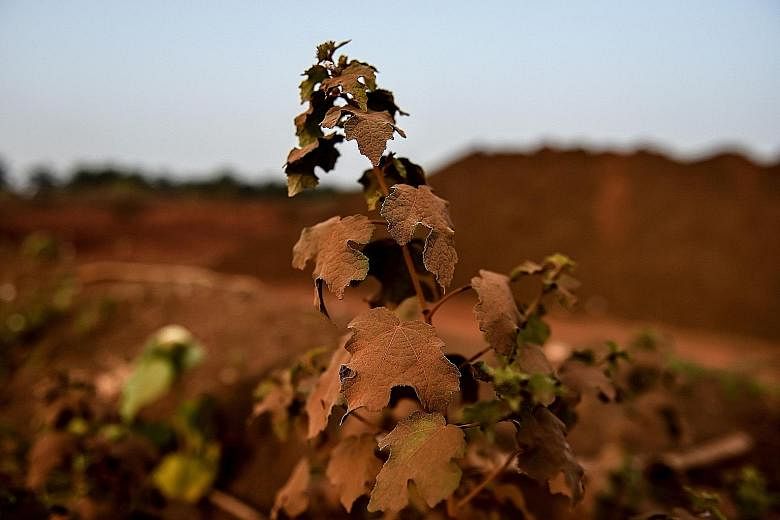KUALA LUMPUR • A team of scientists has warned that damage to the environment from indiscriminate and poorly regulated mining of bauxite may be so severe that the ecosystem may never recover, the New Straits Times reported yesterday.
The scientists also said the adverse health effects on the Kuantan public could be devastating, and could last for generations.
The expert group comprising 17 professionals from an array of environmental disciplines called on the Pahang government to issue an immediate order for cessation of bauxite mining in the district until control measures could be implemented.
Among the recommendations submitted by the group, which called itself the Responsible Citizens of Malaysia and Conscientious Professionals and Scientists, was for miners to prepare a mandatory erosion sediment control plan that would form part of an environment-monitoring plan.
-
BOOMING DEMAND
-
343,000 tonnes of bauxite ore mined in January last year
3.7m tonnes of ore mined by September, rising over ninefold
The experts also stressed that miners must come up with a rehabilitation plan once mining ceases in an area.
The 14-page report by the group of scientists also touched extensively upon how transportation of the resource posed a public health hazard, and was causing irreversible environmental damage.
The report estimated that exports of bauxite to China more than quadrupled in 2014 from 2013 levels and touched 20 million tonnes in 2015.
Last year, the amount of ore mined in January was just 343,000 tonnes, but rose over ninefold to 3.7 million tonnes by September, the report said. Fingers have been pointed at illegal miners for the rapid rise in mining activities.
The experts underlined the risk of heavy metals extracted during mining operations - including arsenic, mercury and aluminium - and other pollutants entering rivers during rains, which could hurt aquatic life. The problem was exacerbated by rivers being barricaded and dammed up to facilitate washing of the ore, the New Straits Times reported.
"While the present situation is disturbing enough, its longer term persistence would mean that there would be no scope for the affected waterways to return to their original state. The changes would be so extreme that the fundamental habitat qualities that support our local biodiversity would be lost and we would be left with a degraded ecosystem," they cautioned.
The group also monitored 24- hour PM10 levels close to mining areas and found that the air-quality standards were breached.
"A populated area cannot be transformed into a huge mining area without serious consequences to the population of 400,000. The state government cannot abdicate its responsibility to look after the well-being and health of these people, the report said.
"Justifying extensive mining in a well-populated area simply because they give income to a small group of people is totally wrong and unheard of in this day and age. In developed countries, this will undoubtedly result in civil suits," the experts said.

